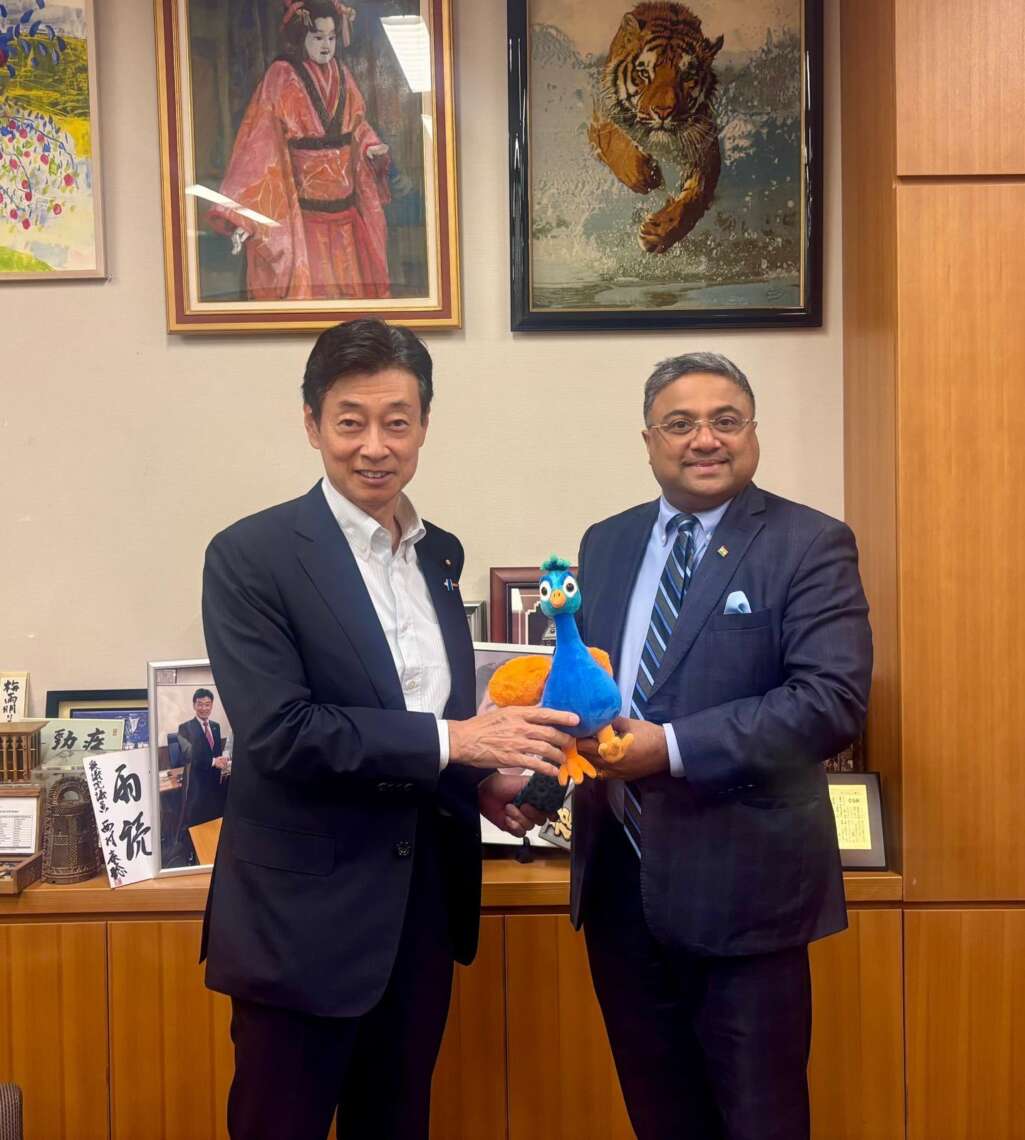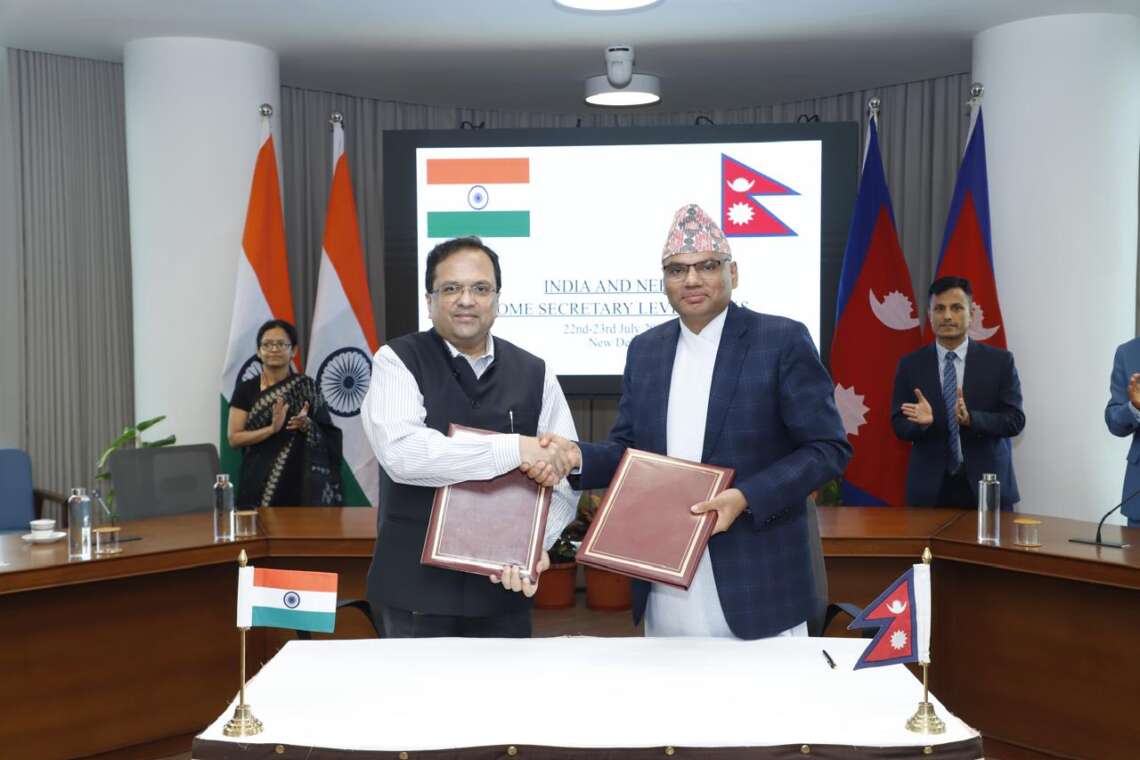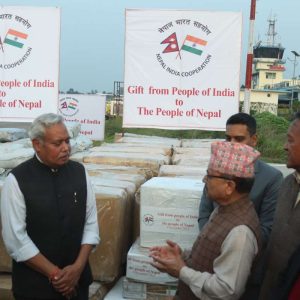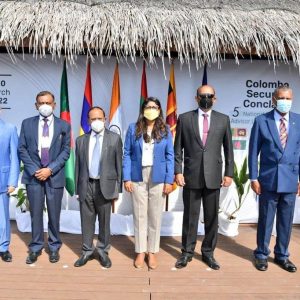On the sidelines of the seminar, Ambassador Sibi George held talks with top Japanese lawmakers…reports Asian Lite News
India and Japan continued to deepen their partnership on maritime connectivity and regional cooperation in the Indo-Pacific region during a seminar titled “IPOI: India-Japan Partnership in Maritime Connectivity” held at the Indian Embassy in Tokyo on Tuesday (local time).
Ambassador of India to Japan, Sibi George, delivered the inaugural remarks at the event, which featured special addresses by Japan’s former Defence Minister and Minoru Kihara, India’s Secretary (East) P. Kumaran, and Shingo Miyamoto, Director General at Japan’s Ministry of Foreign Affairs (MOFA). The discussions focused on strengthening India-Japan cooperation on maritime linkages across the Indo-Pacific region.
The Indian Embassy later shared highlights of the event in a post on social media platform X, “Glimpses of a seminar on “IPOI: India-Japan Partnership in Maritime Connectivity” held at the Embassy. Ambassador @AmbSibiGeorge delivered the inaugural remarks at the event, which also featured special remarks by H.E. Mr. Minoru Kihara, Hon’ble MP & former Defence Minister, H.E. Mr. P. Kumaran, Secretary (East), and H.E. Mr. Shingo Miyamoto, DG, MOFA. Discussions focused on deepening India-Japan cooperation in enhancing maritime connectivity in Indo-Pacific.”
On the sidelines of the seminar, Ambassador Sibi George held talks with top Japanese lawmakers. He met Yasutoshi Nishimura, Member of the House of Representatives, and discussed ways to further strengthen the India-Japan Special Strategic and Global Partnership.
He also received Minoru Kihara, former Defence Minister of Japan and current MP, for a similar discussion on bilateral cooperation.
Last month, Union Minister of Ports, Shipping & Waterways, Sarbananda Sonowal, met Terada Yoshimichi, Japan’s Vice Minister for International Affairs (MLITT), in Oslo. The meeting aimed to expand maritime ties between the two countries, including Japanese investment in Indian shipyards, cooperation in port digitisation, green initiatives, R&D, seafarer employment, and upskilling.
The two sides also discussed Japan’s possible collaboration in developing the Andaman & Nicobar Islands and the Lakshadweep Islands into smart, sustainable, and disaster-resilient islands. Sonowal said Japan’s expertise in this area could help in deploying renewable energy, smart mobility, and digital infrastructure.
In April 2025, following the terror attack in Pahalgam, Japanese Prime Minister Shigeru Ishiba also called Prime Minister Narendra Modi to express condolences. Prior to the call, both PM Ishiba and Japanese Foreign Minister Iwaya had issued public messages of sympathy.
The India-Japan partnership has seen regular high-level interactions. In October 2024, PM Modi met with Prime Minister Ishiba in Vientiane, Laos, during the ASEAN summit. Both leaders discussed enhanced cooperation in infrastructure, connectivity, defence, and other key areas.
India and Japan continue to maintain strategic engagement through structured dialogues. The 17th Foreign Ministers’ Strategic Dialogue was held in New Delhi in August 2024, along with the 3rd round of the 2+2 Ministerial Meeting on the same day, reflecting the countries’ commitment to regional peace, maritime security, and shared prosperity. (ANI)
Japan flags China as ‘Greatest Strategic Challenge’
Japan has published its Defence of Japan 2025 white paper, which details escalating threats from a more united bloc of authoritarian countries, specifically China, Russia, and North Korea, as reported by the Eurasian Times.
The report, sanctioned by Prime Minister Shigeru Ishiba’s cabinet, cautions about a swiftly deteriorating security landscape in the region caused by increasing military collaboration among these nations. It delivers a straightforward evaluation of China, labelling it as the “greatest strategic challenge” facing Japan. The document warns that China’s expanding military presence, assertive maritime actions, and strengthening connections with other authoritarian governments could “seriously impact” Japan’s national security.
This white paper scrutinises CRINK, a loosely connected bloc that some observers refer to as the “Axis of Upheaval.” Although not a formal alliance, the rising diplomatic, military, and economic collaboration among these four nations is perceived as a significant threat to the rules-based international order.
Japan’s Defence Minister Gen Nakatani expressed strong concerns: “The current international order is being profoundly challenged, and Japan is in the most challenging and intricate security situation of the post-war period.” Japan has delivered its most severe warning to date regarding China’s growing military footprint, stating in the white paper that activities from Beijing now pose a “serious impact” on national security.
The document points out the initial confirmed breach of airspace by a Chinese military aircraft, along with increasing maritime pressure in the waters surrounding Japan. It emphasises that China’s military aspirations present an “unprecedented and greatest strategic challenge” to both Japan and the global community. It documents Beijing’s escalated presence near Japan, including a Chinese military aircraft intruding into Japanese airspace in August 2024 and a carrier group navigating between two southern Japanese islands adjacent to Taiwan the following month. (ANI)














